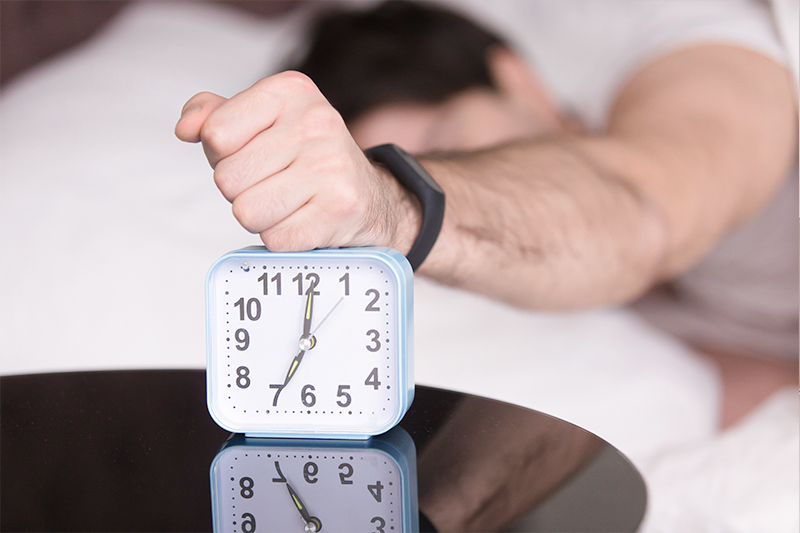Excessive daytime drowsiness affects between 10% and 20% of the American population, and evidence indicates that it is on the rise.
Though not a condition in and of itself, excessive daytime drowsiness should be taken carefully. Your body may be attempting to inform you that you aren’t getting enough sleep, or it may be indicating that you have a sleep issue or another health condition.
It is critical to recognize the symptoms of excessive daytime drowsiness to diagnose and treat the underlying cause.
Should you be concerned about Excessive Daytime Sleepiness?
Excessive daytime drowsiness is characterized as difficulties remaining awake or aware throughout the day, as well as a strong urge to sleep during the day
Sleepiness may be more intense while you are sedentary, such as while driving or sitting at work.
Although it is normal to feel sleepy after a lack of sleep on occasion, it is considered excessive daytime sleepiness when this occurs almost every day for at least three months.
It’s easy to mix up drowsiness with tiredness because both are characterized by a lack of energy and can occur under similar circumstances, such as being up for an extended period.
The main distinction is that patients suffering from tiredness may be unable to fall asleep while feeling fatigued and sluggish. It is also possible to feel both tired and sleepy at the same time.
Symptoms Of Excessive Sleepiness
- Having difficulty in remaining attentive
- Irritated feelings
- Memory issues
- Having difficulty concentrating
- Difficulty in remembering fresh ideas
- Decision-making Difficulties
- Slower response times
- Behaviors involving risk-taking
- Being tired may have a broad range of consequences for one’s health and everyday life.
- Daytime drowsiness also has several consequences, including an increased risk of automobile and work accidents.
- Work productivity or academic performance suffers as a result.
- Life quality has deteriorated.
- Mood and emotion regulation issues
- Social and interpersonal issues
Excessive drowsiness may be especially hazardous for young adults, shift workers, medical personnel, and people who drive frequently.
Long-term sleep deprivation has been related to an increased risk of diabetes, obesity, heart disease, and other chronic diseases.
In children, daily drowsiness may hinder development, but in older individuals, daytime sleepiness increases the chance of falling and may be a risk factor for cognitive impairment, memory loss, and premature death.

Causes Of Excessive Sleepiness
Excessive daytime drowsiness can be caused by a variety of factors. One of the most prevalent causes is a chronic lack of sleep, which can occur as a result of excessive work hours, an irregular schedule, insomnia, or other factors.
Excessive drowsiness can also be induced by receiving poor-quality or interrupted sleep. Getting up several times during the night, for example, disturbs the natural course of sleep phases and may diminish the amount of restorative slow-wave sleep.
Smoking, not getting enough exercise, and other lifestyle behaviors can all have an impact on sleep quality and create daytime drowsiness.
Many people who are very sleepy throughout the day may not appear to be sleeping enough. In some circumstances, tiredness may be a symptom of a medical condition or a sleep disturbance.
Why do we tend to stay awake late at night?
Excessive daytime drowsiness can be caused by a variety of factors. One of the most prevalent causes is a chronic lack of sleep, which can occur as a result of excessive work hours, an irregular schedule, insomnia, or other factors.
Excessive drowsiness can also be induced by receiving poor-quality or interrupted sleep. Getting up several times during the night, for example, disturbs the natural course of sleep phases and may diminish the amount of restorative slow-wave sleep.
Smoking, not getting enough exercise, and other lifestyle behaviors can all have an impact on sleep quality and create daytime drowsiness.
Many people who are very sleepy throughout the day may not appear to be sleeping enough.
In some circumstances, tiredness may be a symptom of a medical condition or a sleep disturbance.
Should you consult a doctor if things get serious?
If you’re constantly fatigued, if excessive daytime drowsiness is interfering with your daily life, or if you suspect it’s an indication of an underlying disease, you should consult a doctor.
To determine the cause of your tiredness, your doctor will do tests and ask questions about your sleeping patterns. They could also question your bed companion whether you snore, gasp, or move your legs during the night.
If they believe you have a sleep condition, they may recommend you to a sleep expert for more evaluation.
The reason of daytime drowsiness determines the treatment technique. The doctor would most likely begin by offering sleep hygiene recommendations and encouraging you to sleep more.
They may alter your prescriptions, and they may also work with you to build a treatment plan for underlying diseases that must be addressed separately.






